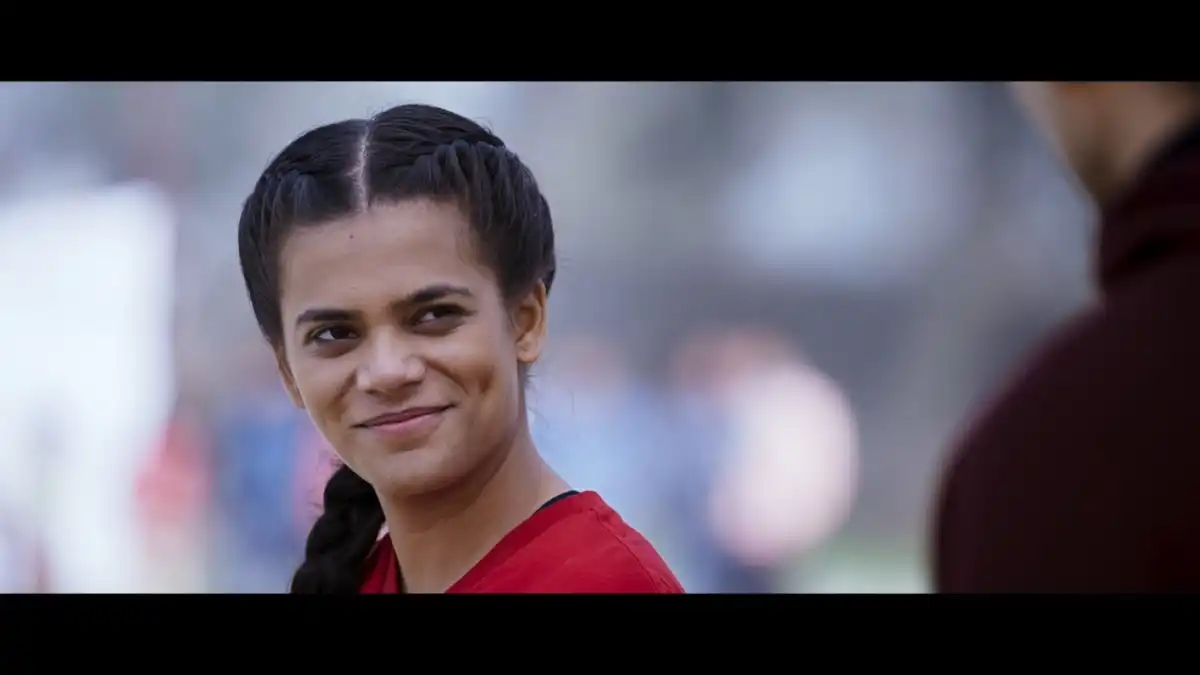Exclusive! Srishti Shrivastava and Vaibhav Talwar: Patriarchy is generational practice, that cannot be irradicated over-night
The sports drama Dhavak celebrates the triumph of a female athlete and raises questions about normalising patriarchy
Sep 06, 2022

The recently released short film titled Dhavak on Amazon miniTV featuring - Srishti Shrivastava and Vaibhav Talwar - intends to start the conversation around practicing the choice of women and the fundamental change that requires building a progressive mindset.
Set in a village in Uttar Pradesh, the story of the short film revolves around a sprinter Sudha who won a bronze medal and aims for gold in the National Championship.
As Srishti played the character of Sudha, according to her, she went through extensive training to look the part, just like any other actors do, for a commercial cinema.
Srishti shared, "Our director was sure from the beginning that we will invest time in the preparation for the short film just like any other Bollywood film. So we had a trainer and a nutritionist on board for the film. I was on a diet and every morning I would wake up and do my practice running. We did it for more than two months before the shooting started. So in my mind, it was no less than a Bollywood film."
However, Vaibhav who also is a sprinter and a police officer in the film named Sudhir, said that he had it easier comparatively since, in the film, he did not have many scenes for which running was required.
"I already am on a diet and practice martial art and go to the gym regularly. So when it comes to looking for the part, my director said, that I am fit for it. Having said that, yes, I had to learn the right body language of a sprinter," said the actor.
While from the beginning of the story, the film shows how Sudha deals with every obstacle to carry forward her career as a female athlete, it is the last leg of the film, that addresses a more nuanced side of the matter that includes taking dowry and accepting a bride's wish as a favour by the groom and his family.
Asked about how he processed the mind of his character, Vaibhav shared that the idea was always to play it subtly.
Vaibhav said, "We had a long discussion with our director Abhishek regarding this, and since it is a short film, we had the liberty to put every single word coming out of the character's mouth very carefully. We were sure not to go over-the-top with the climax scene, we wanted it subtle."
He went on to add, "My character Sudhir is not a man who would reject the marriage proposal if he does not get the car as dahej when they are getting married. But he is the one who, when told that he would get a car from the bride's house as dahej, will receive that happily because he sees it as 'nothing wrong' in taking it. It was morally tricky. He wants dowry, but he will not openly ask for it. So eventually when Sudha asks questions and a conflict happens, with every line he uttered, he revealed the patriarchal mindset he has grown up with and also that has been normalised in our society."
Highlighting the fact that the patriarchal mindset is generational practice, Srishti also added, "I feel the thought behind the scene was to address the deep-rooted mindset."
"I feel that there are a lot of men like Sudhir who think that they understand what women want. They come across a modern man. But patriarchy is such a deep-rooted idea and exists in our regular upbringing, that only when those men are put in a spot, does that mindset come out. It's not their fault really, it's generational practice," said the actress.
She also shared her way to take the first step toward changing the mindset.
Citing her own example, Srishti shared how coming from an orthodox family in Uttar Pradesh she managed to change the mindset of her own parents.
Srishti said, "Since I come from a conservative family, when we relocated to Mumbai, initially I had to keep on saying a lot of things to normalise them. For instance, there is nothing wrong to come back home late at night or I am doing no wrong by wearing my choice of clothes. I think it takes a long time to go through the process of accepting and adapting new values. Fighting against our parents will not help, explaining them again and again will do; because patriarchy is generational practice, not overnight but over the period of time, it will change."
Seconding her point Vaibhab added, "Absolutely! fighting or getting angry with parents or children will not bring any changes. If we love each other, as in between our parents and us, none of us intend to upset each other. So by continuing the conversation, a generational practice like patriarchy can be changed, gender sensitivity can be brought in."
The film Dhavak is directed and produced by the debutant filmmaker Abhishek Sharma.
Share